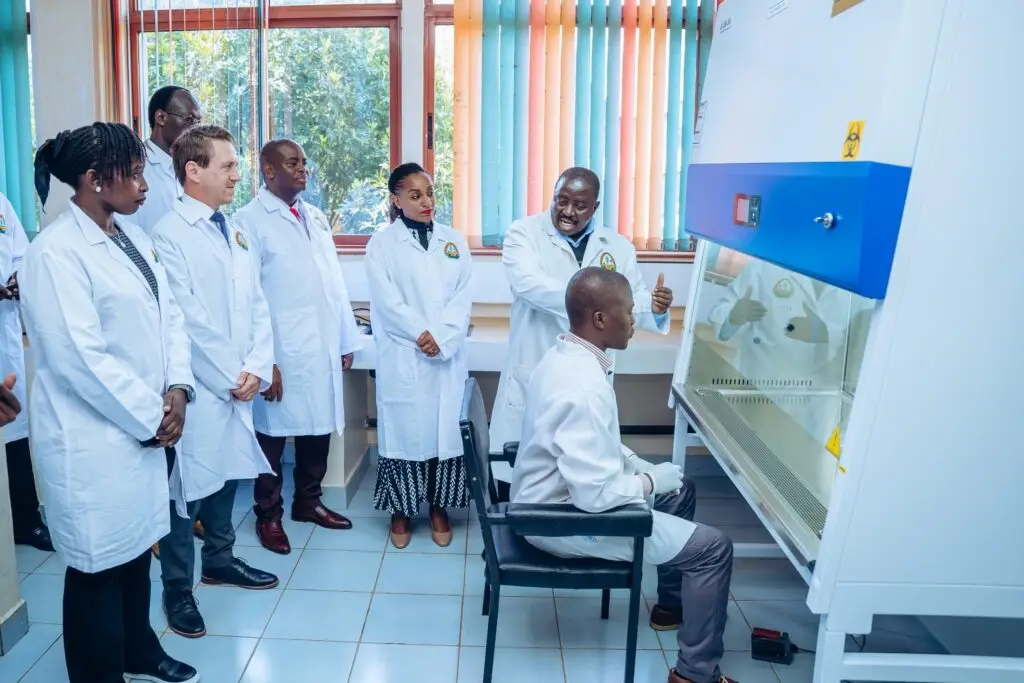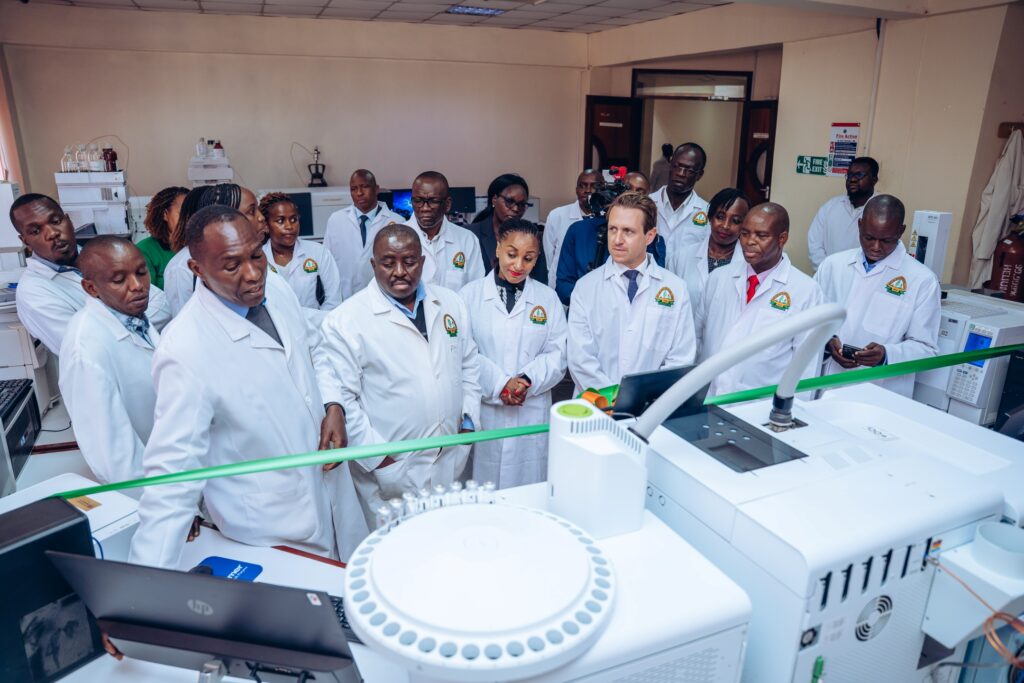Nairobi, Kenya. 17 September 2025 — Kenya’s horticultural industry is set for a major boost following the handover of modern analytical equipment worth Ksh. 152 million to the Kenya Plant Health Inspectorate Service (KEPHIS). The investment, delivered under the Regional Economic Development for Investment and Trade (REDIT) programme funded by the British High Commission in Nairobi through TradeMark Africa (TMA), will strengthen Kenya’s capacity to meet global sanitary and phytosanitary standards (SPS) and secure continued access to key export markets.
According to the Central Bank of Kenya, the country exported 216,429 tonnes of horticultural produce valued at $309.4 million, cementing its place among Kenya’s leading foreign exchange earners. However, exporters continue to grapple with pesticide residues, microbial contamination, and lengthy testing procedures that drive up costs and risk market rejection. The modern equipment, delivered under REDIT, will improve sample analysis throughput by 60% and reduce turnaround time by 50%. This expanded capacity will facilitate faster clearance of horticultural commodities, cut costs, and give importing markets greater confidence in the safety of Kenyan produce.
Speaking during the handover ceremony,Daniel Wilcox, Economic Counsellor, British High Commission Nairobi, said: “The UK and Kenya are working together to give Kenyan and international businesses what they really need – confidence. This equipment will accelerate clearance times, reduce costs associated with delays and testing – and ultimately help grow our economies. The UK and Kenya are going far and going together. ”
The handover of the laboratory equipment targets one of the most persistent barriers to Kenyan exports, namely, the challenge of meeting stringent food safety and quality requirements in markets such as the United Kingdom and the European Union.

Lillian Mwai, Kenya Country Director at TradeMark Africa, said, “By equipping KEPHIS with advanced analytical systems we are strengthening Kenya’s capacity to deliver faster and more reliable conformity assessments. This directly supports our strategy as TMA, of reducing the cost of trade, expanding market access and improving the competitiveness of African exports. For Kenya it reinforces a reputation as a trusted supplier of safe, high-quality produce and aligns with our wider effort to drive export-led growth.”
Prof. Theophilus M. Mutui, Managing Director of KEPHIS, said: “As Kenya’s National Plant Protection Organization (NPPO), KEPHIS plays a strategic role in safeguarding plant health and ensuring that agricultural inputs and produce meet both national and international standards. Our mandate is to assure trading partners that Kenyan produce is safe, compliant, and of the highest quality. The modern analytical equipment provided under the REDIT programme will enhance our service turnaround time, expand the range of tests we can conduct, and strengthen confidence in Kenya’s conformity with global sanitary and phytosanitary requirements. This investment reinforces KEPHIS’s vision of excellence in plant health and quality assurance, supports farmers and exporters to access high-value markets, and contributes to the country’s goal of achieving a food secure nation and enhancing safe trade.”
Clement Tulezi, Chief Executive Officer of the Kenya Flower Council added, “For Kenya’s fresh produce, perception in global markets is as important as production. Buyers want assurance that what reaches them is safe, compliant, and of the highest quality. This new equipment enables us to back our story with data, giving proof, not just promises, that Kenyan exports meet international sanitary and phytosanitary requirements. With such investments, we can reassure markets like the UK and EU, strengthen our competitiveness, and position Kenya as a reliable supplier of horticultural products.”

By improving SPS compliance, the intervention is expected to reduce rejection rates, support exporters in ensuring fresh produce are below the Maximum Residue Limits and other regulatory thresholds, and protect jobs across the horticulture value chain.


